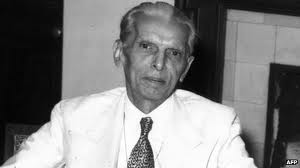Did the Saffron take note of a significant aspect of the Indian Muslims’ temperament in the context of their response to Jaswant Singh’s work on Jinnah? No Muslim organisation, institution or individual expressed feelings on the question and say ‘Did I not tell you?’ They took the issue in their stride as if it was an old, settled question.
Contrary to their neighbours’ stoic, dignified silence, the Pakistanis, they say, took to the streets and danced to express their joy over the “praise of their Quaid-e-Azam by a Jana Sanghi Hindu.”
The Quaid learnt law and sartorial cut at London. Did the Saville Row exist at that time? I do not know. But his knife-like argument and counter-argument is praised even today by his foes and friends alike. No false witness could stand on his legs during Jinnah’s cross examination. Today, despite Balasaheb Thackeray, the Bombay High Court has a plaque, commemorating Jinnah’s brilliant defence of Lokmanya Tilak, when the latter was charged with sedition.
The Shiv Sena supremo once remarked: “Give Pakistan Jinnah’s House for a Consulate and the next day they will demand the Taj Mahal.”
Many cock and bull stories are usually circulated about the people who maintain a certain distance from the masses as Mr Jinnah did. One such story was his laundry was washed either in London or Paris. The “b” part of this story was Jinnah would give entire bale of the cloth to his tailor (Hoar & Co) for a sherwani or a suit. These storytellers – some investigative journalists saw to it – were proved wrong on facts. He was found frugal.
Jinnah’s grandson Nulsi Wadia lives in Mumbai. His face very much resembles his grandfather’s. Once, business rivals decided to get rid of Nulsi. They contacted some contract killers. Everything was settled. But all of a sudden the killers went back on their contract. When asked to explain, they said plainly: “We cannot, and will not, kill Jinnah Saheb’s grandson.”
M C Chagla recalls in his Roses in December an incident, referred to by Soli Sorabjee also recently: Jinnah and Chagla were at a Bombay restaurant, Cornaglia. Jinnah ordered two cups of coffee, a plate of pastry and a plate of pork sausages. As they were enjoying their snacks, in came an old bearded Muslim with a young boy. Tea and soft tea were ordered for them. Somehow the young boy picked up one of the sausages and started eating it with much relish.
After they left, Jinnah admonished Chagla for allowing the young Muslim boy to consume the forbidden meat. Chagla said his dilemma was whether he would let Jinnah lose the municipal election by revealing the contents of the snack or consign the boy to eternal damnation. Chagla decided in Jinnah’s favour.
Jinnah still lives in India through his Jinnah House at the Malabar Hills. Its European-style architecture, Italian marble flooring and walnut woodwork make it more than a house. Jinnah loved it.
When Nehru through Sri Prakasa, our first High Commissioner to Pakistan, wanted to know what had to be done of the Jinnah House, the late Quaid, in a rare tremor, in his otherwise imperial voice replied: “You do not know how I love Bombay. I still look forward to going back to it one day. Tell Jawahar not to break my heart. I have built that house brick by brick.”
Though living separately, the “arrogant” Mr Jinnah wept like a child at the death of Ruttie. For the first time in his life, people saw him breaking down when they lowered her body into the grave. There was something inexplicable in Mr Jinnah. As I write these lines and you read them, someone, somewhere may be saying Faatiha at his mausoleum in Karachi.


